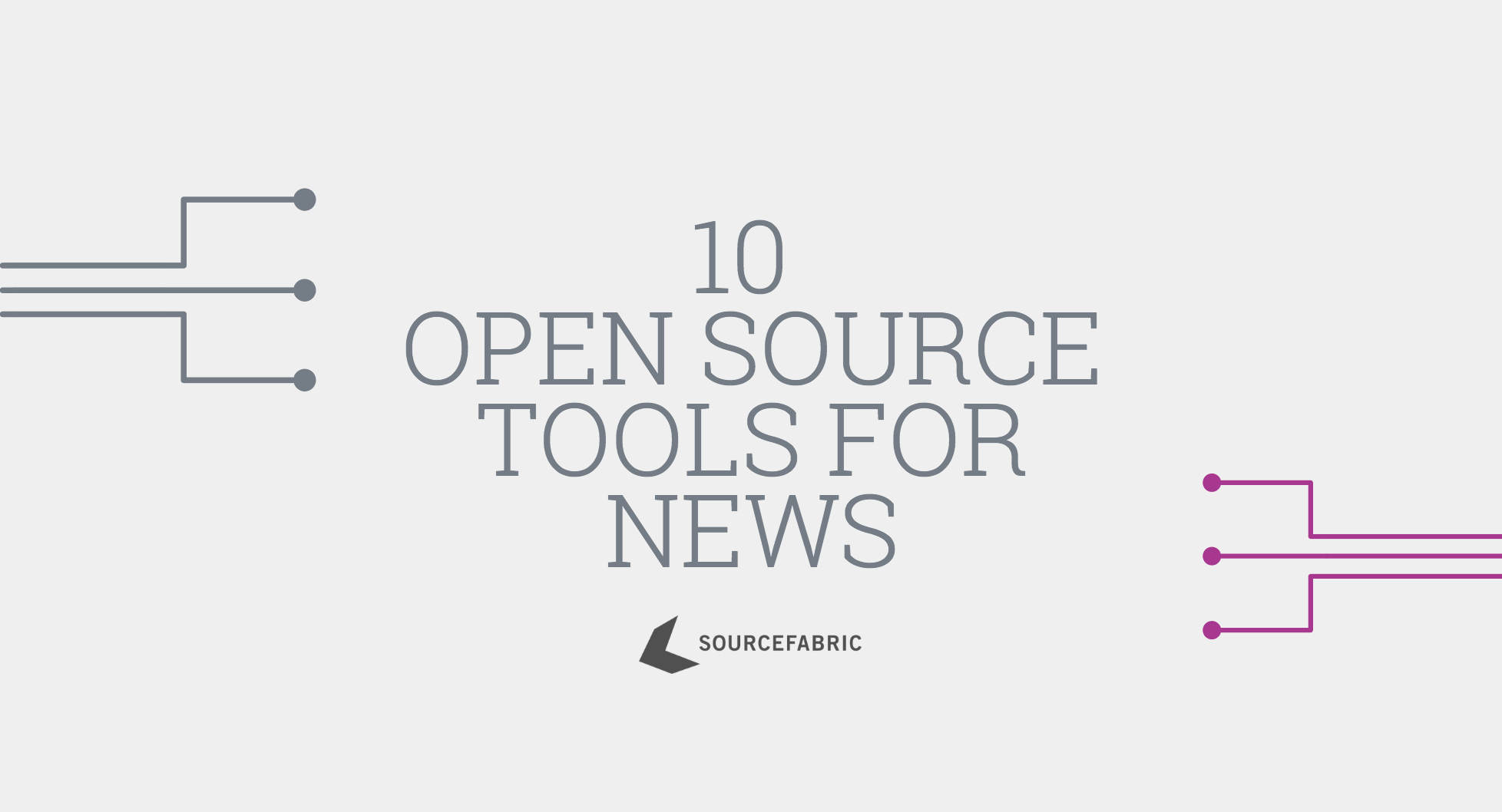10 Open Source Tools for News That You Should be Using This Year

With all the distractions online just begging you to procrastinate, (yes, social media, we’re looking at you) it’s easy to forget all the amazing resources available free on the internet. This is especially true if you’re a journalist. With so much stuff out there, however, the flip side is often that it’s difficult to know where to start - or even where to look - for tools to help you tell important stories.
Here at Sourcefabric, we believe that open source has so much to offer good journalism. That’s why we decided to put together this list of open source journalism tools that you should be using in 2018, for solutions to everything from content management to data gathering. So close that Facebook tab, read on and then get down to some productive work.
#1 Transcribe: for whizzing through those boring transcriptions
Interviewing is good fun, isn’t it? Not so fun, however, are the hours afterwards that you have to spend listening to your own voice (I’m afraid you really do sound like that) and transcribing the whole thing.
Transcribe allows users to slow down, speed up, pause or rewind audio with simple keyboard shortcuts, and even works offline. The tool also combines your audio player with a text editor - avoiding the irritating process of switching between tabs whilst working.
Download Transcribe on GitHub.
#2 Superdesk: for all your content management needs
If you’re after an open source newsroom CMS to prepare you for anything the future might throw at you, Superdesk could be the system you’ve been looking for. It’s platform-agnostic, designed for easy integration with external applications, and can automate news production to boost the efficiency of your workflow.
Download Superdesk on GitHub.
#3 Zotero: for keeping all your sources in one place
If you’re putting together a longer investigative piece or series, this one’s for you. Zotero is a free tool that allows you to collect, organise, cite and share research. One of Zotero's coolest features is its ability to detect when something you’re looking at in your browser might be research, and with just one click you can add it as a source to your library. You can also sync your sources to other devices and collaborate with other users. Say goodbye to that disorganised Google Drive!
Download Zotero on their website here.
#4 Tails: for staying anonymous online
In the case of sensitive investigations, it’s key that journalists do all they can to protect themselves and their sources. That’s where Tails can help.
Aiming to preserve your privacy and anonymity online, Tails is a Linux-based operating system for encryption that allows you to use the Internet anonymously and circumvent censorship, leaving no trace on the computer you’re using unless you ask it to. Tails also uses cryptographic tools to encrypt your files, emails and instant messages to keep all your communications safe too.
Download Tails here.
#5 Securedrop: for sharing sensitive information
On the theme of security online, Securedrop is an open source whistleblower submission system that media organisations can install to securely accept documents from anonymous sources. Essential for keeping your own, and your whistleblower’s identity safe.
Download Securedrop on GitHub.
#6 Live Blog: for catching every moment as it happens
Whether covering a sporting event, elections or even the Eurovision song contest, Live Blog is the professional open source tool you can rely on. The easy-to-use interface offers customisable options for pinning and highlighting posts, adding unicode icons and GIFs and including social media posts as well as comments from your audience within the feed.
Download Live Blog on Github.
#7 Datawrapper: for easy data visualisation
This one is great for anyone whose coding skills are somewhat limited. With Datawrapper, users simply have to input their content, choose a visualisation and publish. The charts you create are interactive, responsive and embeddable on your own website.
Download Datawrapper on Github.
#8 Web Mii: for tracking down those hard-to-find contacts
When Google isn’t turning up the results you need, WebMii is a tool that will allow you to track people down on social media, as well as linking you to any relevant published stores, blogs or websites associated with that person.
Use WebMii here.
#9 WhatDoTheyKnow: for saving you time with FOIs
Before you make a new Freedom of Information (FOI) request, check out WhatDoTheyKnow, an archive of past FOIs for you to browse - with some seriously interesting data out there to be discovered. It should be noted, however, that the archive is UK-based, not worldwide.
Currently, other users can also see the FOI requests you’re making, though the platform is working on a version that will allow you to make requests privately.
Use WhatDoTheyKnow here.
#10 DocDiff: for ending your re-drafting woes
DocDiff is a simple yet effective tool for showing you the precise differences between two versions of a text, saving you the headache of picking through it yourself and the possibility of making mistakes.
Download DocDiff here.
